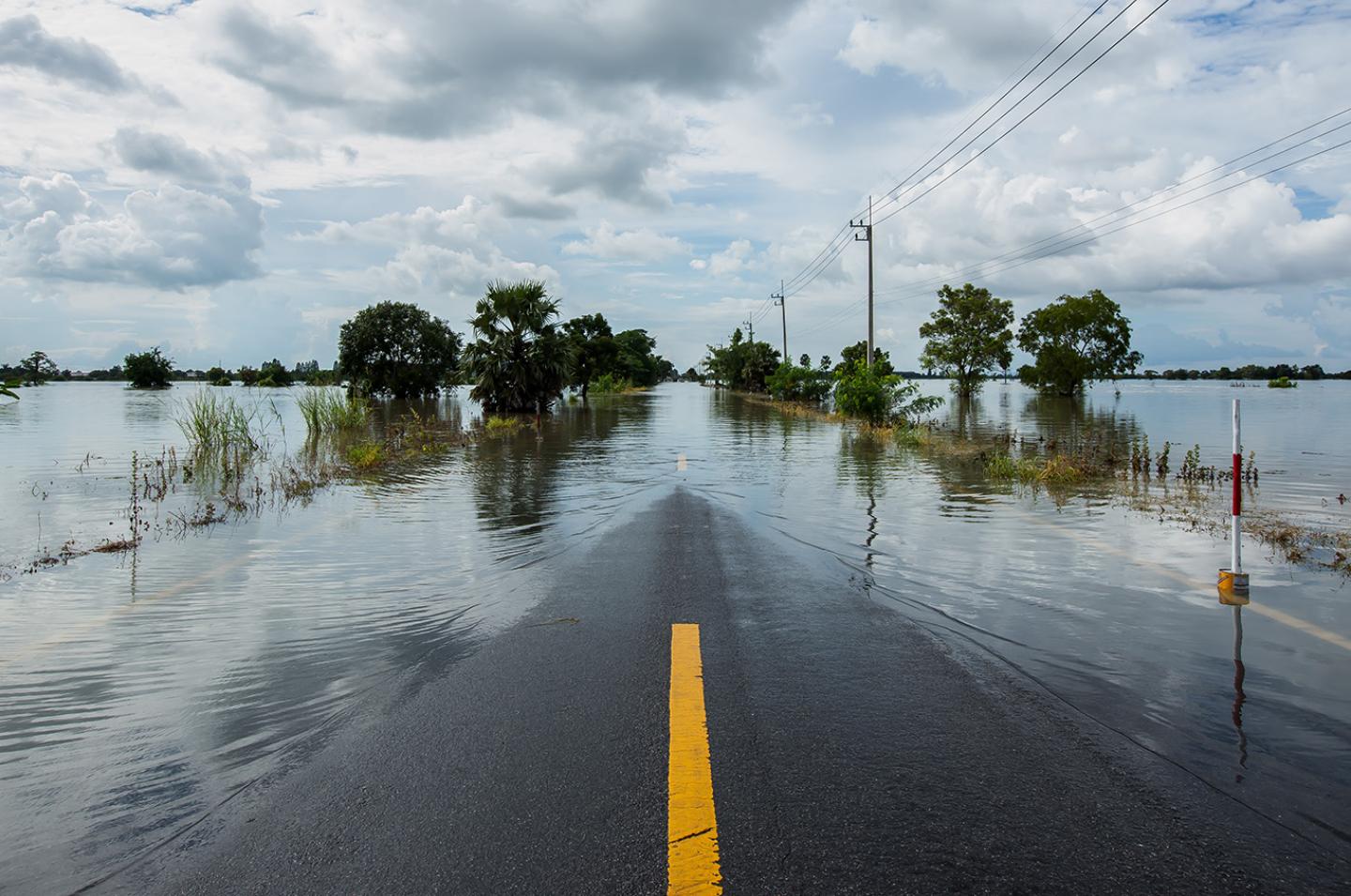A major hurricane hits the Caribbean islands and southeastern United States. The Horn of Africa weathers its longest and most intense drought on record. Historic flooding displaces tens of millions in Pakistan, China, and India. Wildfires ravage the Australian bush.
When news hits of yet another once-in-a-century extreme weather event, Yale research shows that people often interpret the disasters as discrete events rather than part of a larger story about climate change.
Thanks to a gift from the Bezos Earth Fund, the Yale Program on Climate Change Communication is studying how to help people understand that the frequency and severity of many extreme weather events is now often a result of our changing climate.
An Immediate Crisis
“Our research shows that many people perceive climate change as a distant problem, even though it is already doing serious damage today,” says Anthony Leiserowitz, director of the Yale Program on Climate Change Communication. “The stories we tell about climate change have a direct impact on whether people see it as a crisis that needs to be urgently addressed.”
In partnership with the nonprofit Climate Central and the World Weather Attribution initiative, Yale researchers are studying how best to communicate the links between human-induced climate change and extreme weather events.
"Connecting the dots between extreme weather events and climate change helps people see that climate change is real, it's happening now, and addressing it must be a priority," says Kelly Levin, ’02, ’03 MEM, ’09 PhD, chief of science, data, and systems change for the Bezos Earth Fund. "The real-time attribution of specific extreme events to climate change is a recent and still emerging capability. The Bezos Earth Fund is proud to support this work to not only expand climate science but also help communicate about it in a way that makes it clear that extreme heat events, flooding, hurricanes, and more are intensifying due to climate change."
Measuring the Success of a Story
The Yale Program on Climate Change Communication (YPCCC) works with governments, journalists, businesses, and advocacy organizations around the world to engage different audiences in climate action. YPCCC journalists also produce a daily national radio program called Yale Climate Connections that features stories about the human impact of climate change.
“We do scientific research that informs the stories we tell about climate, and then we bring those stories back into the research environment to see if they actually raise awareness and engagement,” Leiserowitz says. “It’s an incredibly effective way to measure the power of a news story.”
In this new study, YPCCC researchers will use data from Climate Central and the World Weather Attribution initiative to explain how global warming is making many extreme weather disasters worse. The coalition will conduct survey and experimental research in India, the United Kingdom, and the United States, building what they hope could be a model for other parts of the world.
A Psychology of Empathy
“Climate change is the policy problem from hell—you almost couldn’t design a worse fit for our underlying psychology and institutions of decision-making,” Leiserowitz says. “Elections and shareholder reports are on much shorter timetables than climate change, which is unfolding over decades. The stories that best break through these barriers are emotional, human, and individual, not abstract scientific descriptions or political arguments.”
This research project will test that theory on a global scale, collecting data that will galvanize awareness about the climate crisis.
“Yale is home to the oldest school of the environment in the nation, and one of its only centers for climate change communication, making our institution uniquely well-positioned to lead on climate solutions,” says Indy Burke, the Carl W. Knobloch, Jr. Dean of the Yale School of the Environment. “We are grateful for the leadership of Jeff Bezos P ’25 and Lauren Sanchez, Andrew Steer and the Bezos Earth Fund team, especially our alumna Kelly Levin, for their partnership in addressing the most significant threats facing our planet.”
